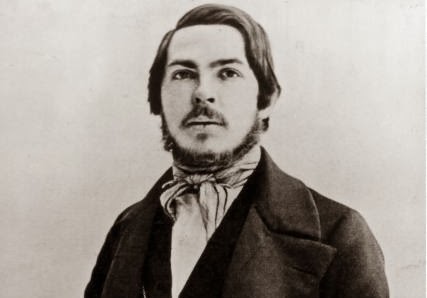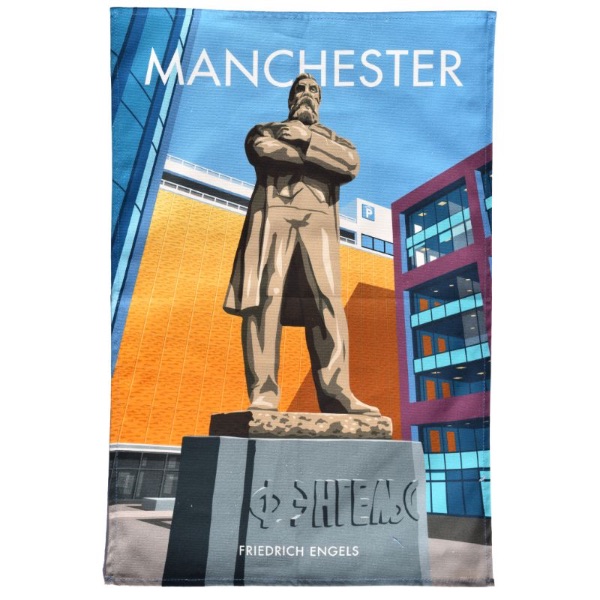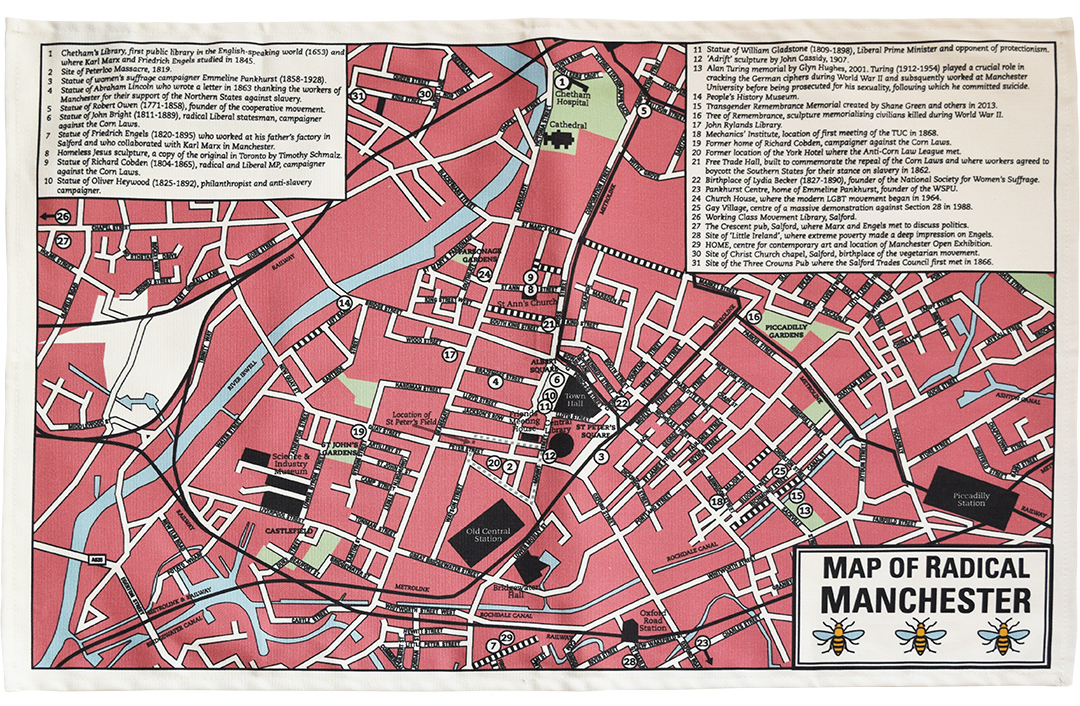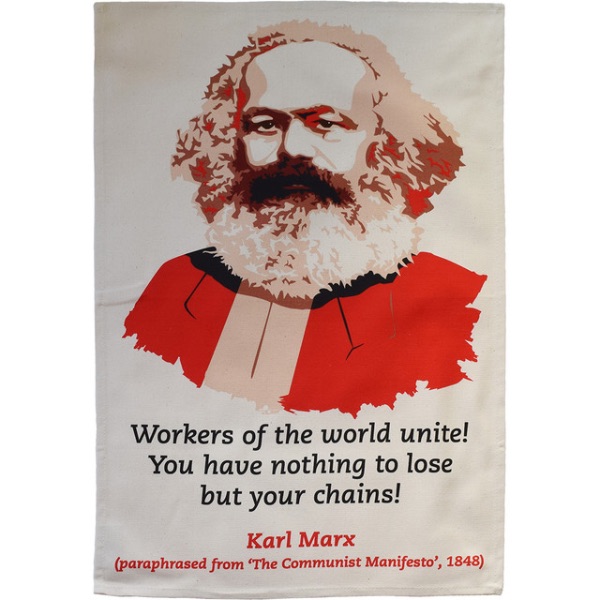From Textile Magnate to Communist: The Life of Friedrich Engels
Posted by Pete on 5th Aug 2024

Coauthor with Karl Marx of The Communist Manifesto, Friedrich Engels has always been slightly overshadowed by his more famous communist friend
“From the first day to this, sheer greed was the driving spirit of capitalist civilisation.”
Friedrich Engels died on this day in 1895. Though he’s mostly known as Karl Marx's less-famous friend and financier, he was also a revolutionary socialist in his own right.
Engels was born into a rich, bourgeois family in the industrial town of Barmen, Prussia, in 1820.
His dad was an international textile magnate, who owned cotton mills in Barmen and in Manchester, England.
This was hardly the background you’d associate with a founder of modern communism…
This 3.5 metre statue of Engels originally stood in Ukraine and now stands in Tony Wilson Place in central Manchester
See the Engels Statue tea towel
In 1838, while apprenticing at a trading house in Bremen, Engels began reading the philosophy of Hegel – a gateway to radical politics for many young Germans at the time.
Soon after, Engels was in Berlin during his national service in the Prussian army. There, he linked up with the so-called ‘Young Hegelian’ intellectual circle.
It was through the Young Hegelians that Engels first made contact with the journalist Karl Marx in Cologne in 1842.
That year, Engels also moved from Prussia to Manchester to take over the family business there.
Engels’ father had hoped that the experience of the capitalist frontline – industrial Manchester – would temper his son’s increasingly dissident political ideas.
But the exact opposite happened.
Manchester’s role as the heart of world capitalism meant that there were few places in the world where the increasingly violent exploitation of the industrial working class was more obvious.
This map of Manchester showcases 28 locations from Manchester's radical past, from St Peter's Square to the home of Emmeline Pankhurst
See the Radical Manchester tea towel
Educated by a young Irish radical Mary Burns, who worked at the Engels’ factory in Salford, Friedrich learned how degrading and vile the new capitalist system was for workers.
Burns showed Engels the intense and regularly fatal poverty of workers in Manchester, and he recorded their observations in his book The condition of the working class in England (1845).
But Engels didn’t only see misery in the proletariat, he increasingly saw revolutionary political power, too – the power to overthrow capitalism:
“… a class which bears all the disadvantages of the social order without enjoying its advantages… Who can demand that such a class respect this social order?”
Engels now committed himself to revolutionary political activism. He made links with socialist intellectuals like Robert Owen and existing working-class movements in Britain, including the Chartists.
But Engels was also well aware that capitalism was not only a menace in Britain – it was an international problem, which demanded international solutions.
In 1844, Engels returned to Germany, already a convinced socialist. En route, he met Marx for a second time in Paris, where the two men became lasting friends.
From 1845, Engels and Marx were both in Brussels, working to organise the European communist and labour movements and networking with anti-capitalist intellectuals like Heinrich Heine.
The ideas of Marx and Engels went on to inspire the Bolshevik Revolution of 1917
In Brussels, Engels and Marx both joined the underground Communist League, formed by German workers in the city.
It was the Communist League that commissioned Engels and Marx to write both men’s most famous text, the single most influential text in radical history: The Communist Manifesto.
The manifesto was published in February 1848 as an action program for the League, and included the famous call to arms:
“Workers of the world, unite. You have nothing to lose but your chains!”
That same year, the international 1848 Revolutions broke out across Europe, variously aimed at the overthrow of political absolutism, imperial domination, and sometimes even the capitalist social order itself.
1848 ended up being the one major revolutionary crisis of Engels and Marx’s adult lives, and they weren’t going to sit it out…
Engels was active in the revolutionary struggles for political democracy in Germany, which was then divided between multiple monarchical states.
Engels and Marx joined in a popular uprising in Cologne, and Engels fought against the Prussian-led counter revolution as an armed partisan during 1849.
But the reactionaries triumphed across Europe after 1848.
Engels and Marx were forced into a lasting political exile in England, with Engels arriving from Germany in November 1849.
Over the following decades, until Marx’s death in 1883, Engels collaborated with him intellectually on major works of political economy like Das Kapital, and he helped to finance Marx with the profits from the Engels’ firm in Manchester.
Engels also collaborated politically with other anti-capitalist radicals in England, including William Morris and Marx’s daughter Eleanor.
And Engels added to his own body of communist political theory, too, with works on the history of peasant rebellion in Germany, and an early socialist feminist critique of the patriarchal family structure in The origin of the family, private property and the state (1884).
By his own admission, Friedrich Engels was not a thinker on the level of his friend Karl Marx.
But by the time Engels died in London in 1895, few people alive in Europe had done more to build the foundations of socialism, as a political movement and as a social dream of the future.



